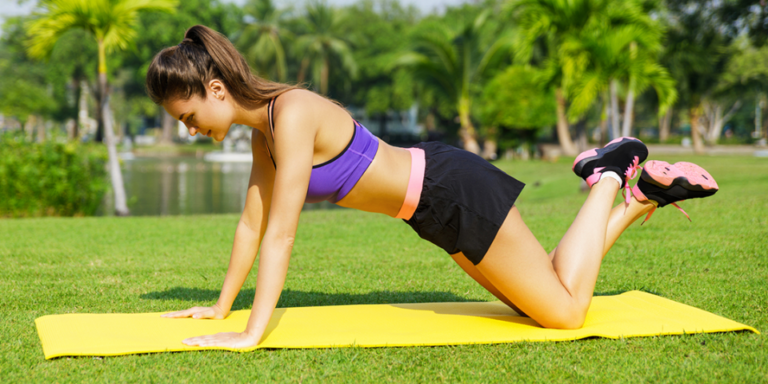
When you think of challenging, time-effective workouts, high-intensity interval training (HIIT) staples — like squat thrusts and tuck jumps — probably come to mind. However, high-intensity low-impact training (HILIT) can be just as useful for improving heart health, shedding excess weight, and strengthening muscles.
HILIT goes against the pervasive “no pain, no gain” mentality and shows us that the toll that an exercise has on your body doesn’t directly relate to its benefits.
What Is HILIT?
Like HIIT, HILIT workouts are comprised of bursts of activity interspersed with short rest periods. Work intervals are for pushing your limits; during a HILIT session, your heart rate may hover between 80 and 90 percent of your maximum heart rate.
But not because you’re jumping, bounding, or moving in a way that greatly impacts your joints. HILIT workouts omit plyometric movements by design.
However, don’t let the “low-impact” aspect of HILIT fool you.
“The idea behind HILIT is not to make a workout easy,” says Elanit Sellers, BODi’s executive director of fitness development. “This methodology of training allows for sweaty workouts while minimizing the impact on the joints.”
Is Low-Impact HIIT Effective?
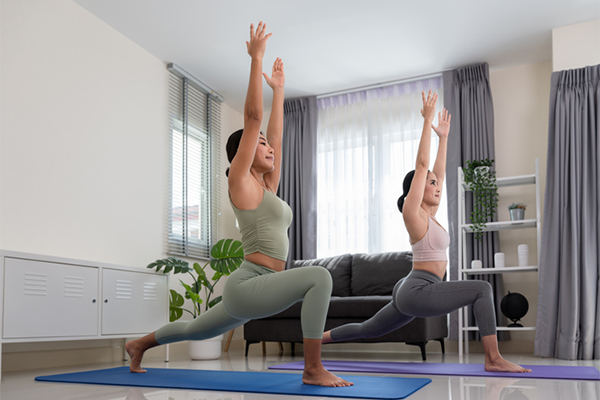
HILIT workouts are effective as long as you’re maintaining a high level of intensity throughout the workout and sticking to relatively short rest periods.
“Just because an exercise is low-impact doesn’t mean you’re not still challenging your muscular and cardiovascular endurance,” Friedman explains.
In fact, for some people, HILIT may be preferable to HIIT.
“Everyone lives in a different body, which means not everyone’s body feels good when performing high-impact exercises,” Friedman says. “HILIT is a great way to train your body while minimizing your risk of injury by reducing force on the joints. The benefits are increased strength, better cardiovascular endurance, leanness, and weight loss.”
HILIT Workouts to Try
If you’re interested in incorporating HILIT into your workout routine, Friedman recommends trying Pilates and more vigorous styles of yoga.
You’re guaranteed to break a sweat in any one of BODi’s Xtend Barre and XB Pilates classes, and Yoga52 offers challenging sequences for practitioners of every level of experience.
If you’re looking for HILIT exercises to build your core and butt, check out Jordan Morello’s Ab + Booty Burn! Jordan has dealt with his fair share of injuries and setbacks, so he designed his workouts around low-impact exercises.
Try some of his favorite moves that work your abs and booty simultaneously.
But if you’d rather put together your own HILIT circuit, here are some movements that will get your blood pumping (without pummeling your joints).
1. Inchworm
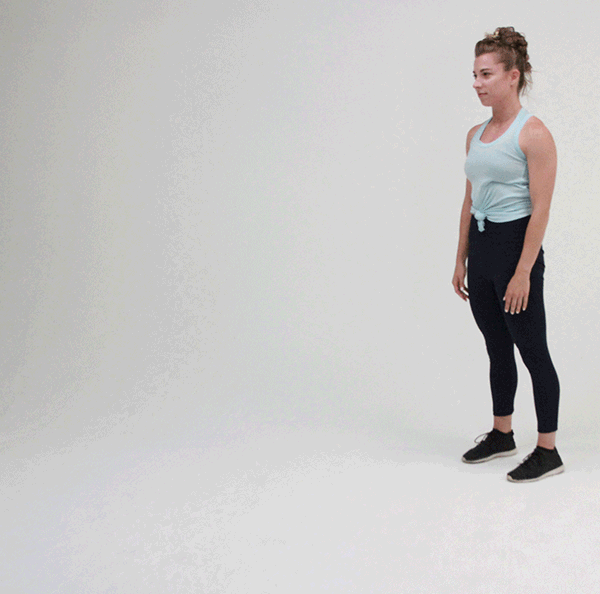
Stand tall with your feet hip-width apart and your arms at your sides.
Keeping your core engaged and back flat, hinge forward at your hips and place both palms on the floor. Bend your knees slightly if necessary.
Walk your hands forward into a high plank position. Your wrists should be directly under your shoulders, and your body should be straight from head to heels.
Reverse the movement, walking your hands back toward your feet to return to the starting position.
2. Goblet squat
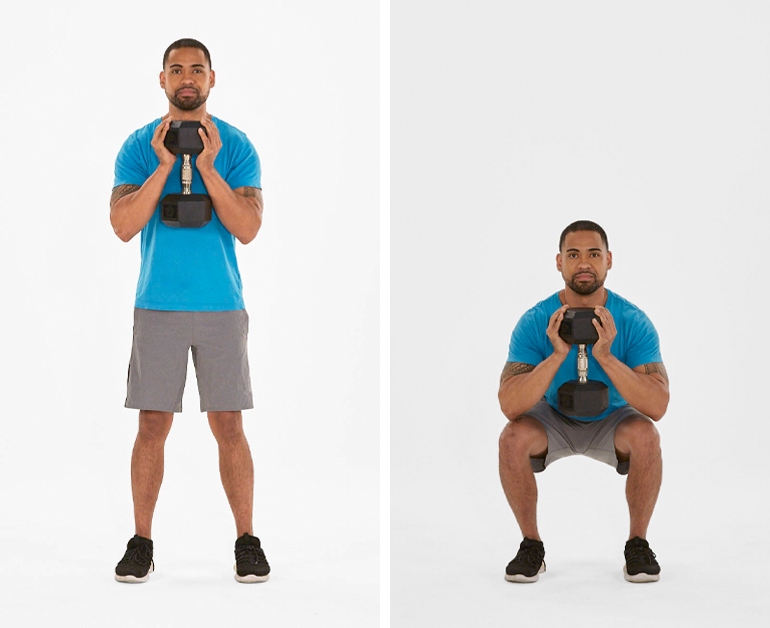
Grab a dumbbell and hold it vertically in front of your chest, cupping the top end in both hands (imagine it’s a heavy goblet). Set your feet slightly wider than shoulder-width apart.
Keeping your back flat and elbows pointed down, push your hips back and lower your body until your thighs are at least parallel to the ground (your elbows should stay inside your knees).
Pause, and then slowly push yourself back up to the starting position.
3. Reverse lunge to biceps curl
Standing with your feet hip-width apart, hold a pair of dumbbells by your sides with your palms facing forward.
Keeping your chest up, back flat, shoulders back, and core engaged, take a large step back with your right leg. Simultaneously bend your elbows and begin to lift the dumbbells toward your body.
Lower your body until your left thigh is parallel with the floor. (Your knees should be bent about 90 degrees, with the right knee hovering a couple of inches above the ground.) As you lower your body, curl both dumbbells up toward your shoulders, keeping both elbows pointed down.
Pause, and then push off your back foot to return to the starting position, slowly lowering the weights.
Perform equal reps on both sides.
4. Modified Pilates push-up
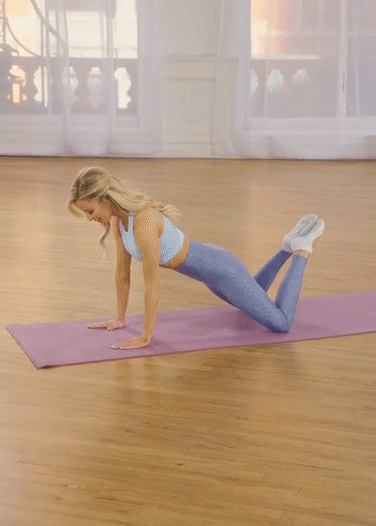
Start on all fours with your palms and knees on the floor. Your elbows and shoulders should be stacked directly over your wrists.
Position your knees so that there’s a straight line from your head to your knees; don’t allow your hips to pike up or sag toward the floor. Bend your knees, point your toes, and lift your heels toward your butt.
Keeping your elbows tucked in toward your body, bend your arms to lower your chest to the floor.
Push through your palms to straighten your elbows and lift your chest away from the floor.
5. Seated triceps dip
Sit on the floor with your legs together. Bend your knees, place your hands on the floor behind your butt, and press the soles of your feet into the floor.
Slide your feet toward your butt and lift your hips off the floor.
Keeping your elbows tucked in toward your body, bend them to lower your hips until your butt is a couple of inches from the floor. Use your triceps to quickly straighten your elbows and lift your hips.
Continue to use your triceps to lower and lift your hips in a quick, pulsing motion until all reps are complete.
6. Jackknife sit-up
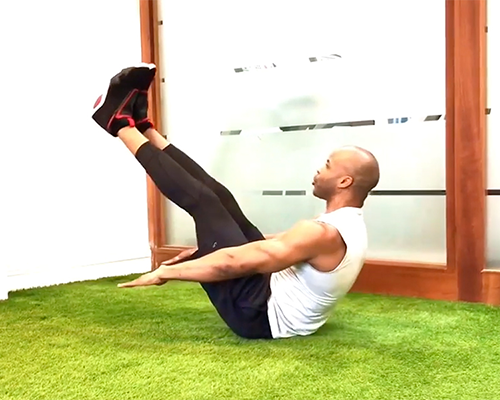
Lie flat on your back and neutralize your lower back (avoid a rounded or an arched spine).
Extend your legs out long and reach your arms above your head.
Hover your arms and legs a few inches off the floor. (Continue to press your tailbone into the mat.) This is your starting position.
On an exhale, lift your head and pull your arms and legs up into a V-shape (lift 30-45 degrees away from the floor). Hold the position, keeping your arms and legs straight.
Lower back to your starting position.